Drawing the Line: When Family Generosity Meets Repeated Disrespect
In a heartfelt account, an aunt recounts her experiences with her 12-year-old niece, whose repeated destructive behaviors have strained family ties. Despite the aunt’s consistent support—ranging from financial assistance to hosting family gatherings—the niece’s actions, including damaging property and displaying disrespect, culminated in a decision to restrict her from future visits. This decision, while aimed at preserving household harmony, sparked backlash from the niece’s parents, leading to further familial discord.
The situation underscores the complexities of familial obligations, especially when generosity is met with ingratitude. It raises pertinent questions about setting boundaries, the responsibilities of guardianship, and the challenges of addressing behavioral issues within the family unit.
Some parents will let their kids get away with anything, as this woman found out the hard way

Her 12-year-old niece has been acting out, breaking things and just being generally mean




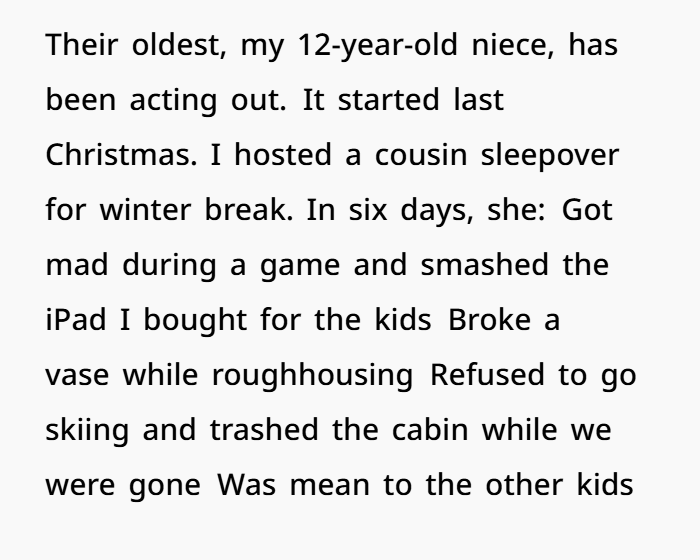

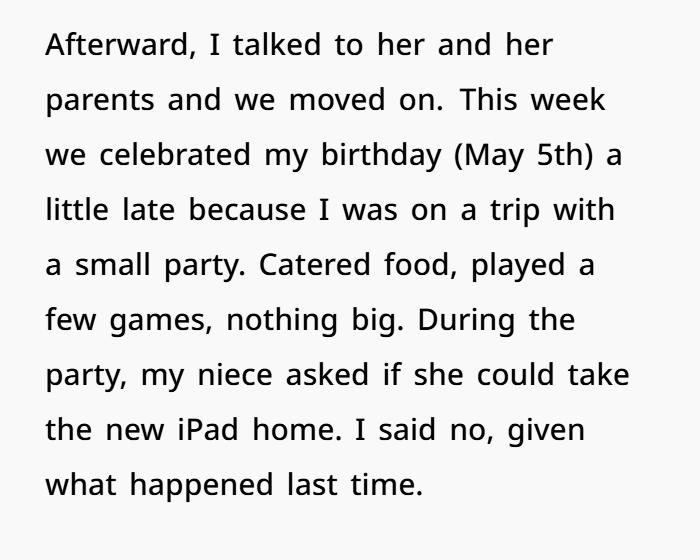
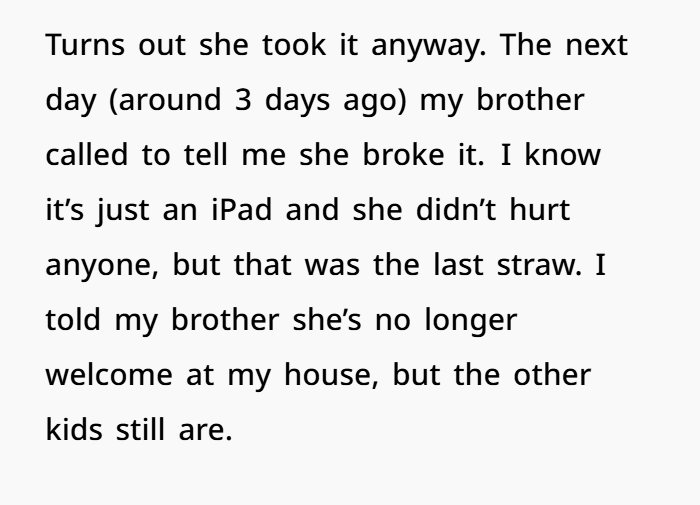
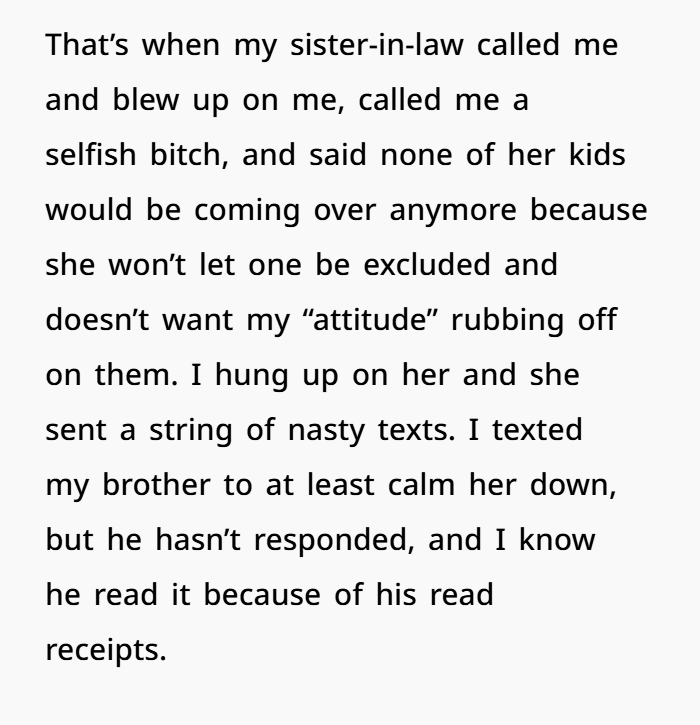
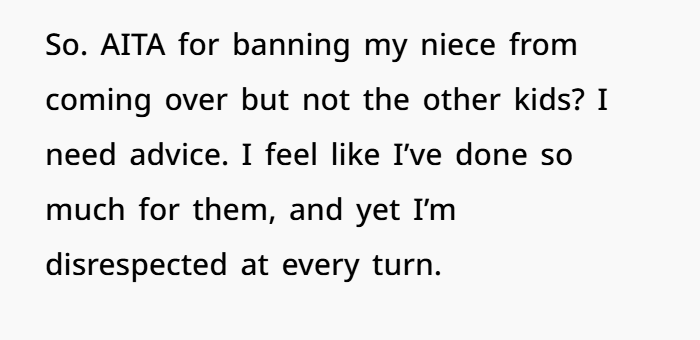
1. Establishing and Maintaining Boundaries
Setting boundaries with family members, particularly minors, is a delicate endeavor. While familial bonds often come with expectations of unconditional support, it’s essential to recognize when such support becomes detrimental. Experts emphasize the importance of clear communication and consistency in enforcing boundaries to maintain healthy relationships and personal well-being.
2. Addressing Behavioral Issues in Adolescents
Adolescence is a critical developmental stage, and behavioral challenges are not uncommon. However, repeated destructive actions, such as those exhibited by the niece, necessitate intervention. Implementing structured behavioral strategies, like positive reinforcement and setting clear consequences, can be effective. In some cases, seeking guidance from child psychologists or counselors may be beneficial to address underlying issues.
3. The Role of Parents in Mediating Conflicts

Parental involvement is crucial in mediating conflicts involving their children. In situations where a child’s behavior affects extended family members, parents should take proactive steps to address the issues, including open dialogues, apologies, and corrective measures. Failure to do so can exacerbate tensions and lead to long-term relational rifts.
4. Legal Considerations in Restricting Access
While the scenario primarily revolves around family dynamics, it’s worth noting that homeowners have the legal right to control access to their property. If a guest, even a family member, engages in disruptive behavior, the homeowner can lawfully deny future entry. However, it’s advisable to handle such situations with sensitivity to avoid escalating conflicts.
5. Seeking Mediation and Counseling
When familial disputes reach an impasse, involving a neutral third party, such as a mediator or family counselor, can facilitate constructive conversations. These professionals can help families navigate conflicts, understand each other’s perspectives, and work towards mutually agreeable solutions.
In the comments, readers concluded the original poster was not being a jerk and one even suggested she send her sister-in-law an invoice for the damage

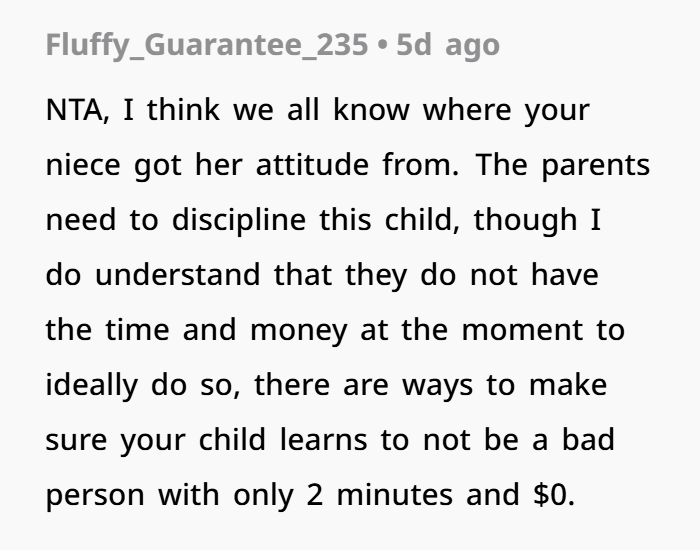
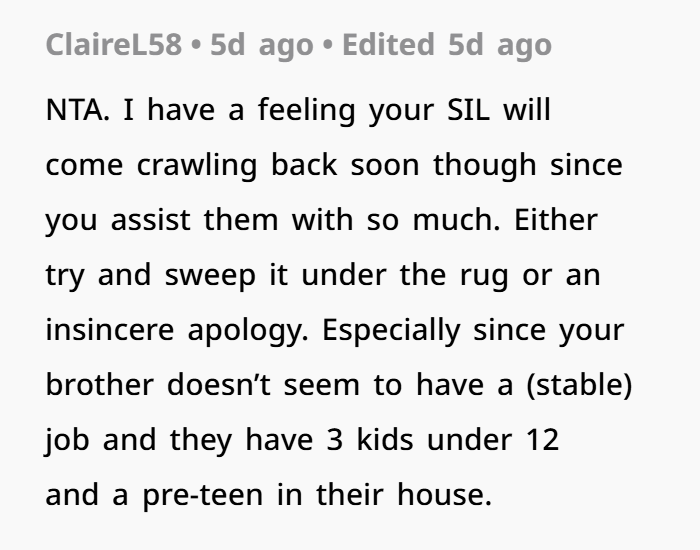
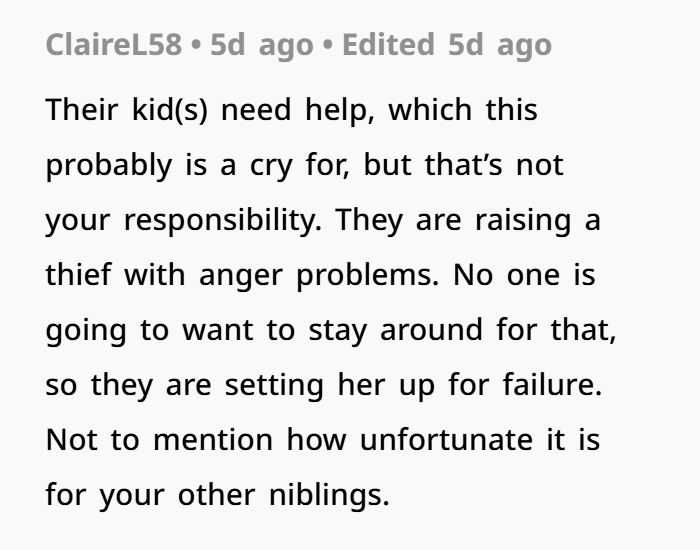

In conclusion, while the aunt’s decision to restrict her niece’s visits stems from repeated negative experiences, it highlights broader themes of boundary-setting, parental responsibility, and the complexities inherent in family relationships. Addressing such issues requires a balanced approach, combining empathy with firmness, to foster understanding and maintain familial harmony

